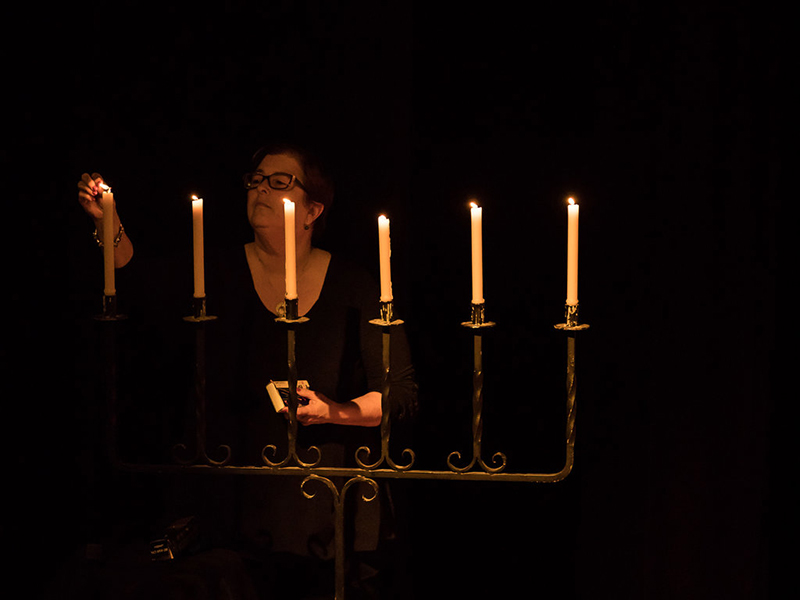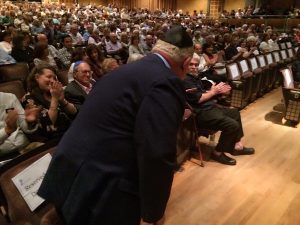In 1946, Holocaust survivor Joe Feingold came across an old violin in a European displaced persons camp he was living in. He traded a carton of cigarettes for it.
“I grew up in a musical family,” recalled Feingold in a documentary called Joe’s Violin. “Having a violin to play again, brought back happy memories of my life before the war.”
Joe’s Violin is an uplifting documentary that was released in 2016. It was directed and produced by Kahane Cooperman and nominated for an Oscar in 2017.

The documentary was the centrepiece of Winnipeg’s annual commemoration of Kristallnacht, the first major pogrom against the Jews in Nazi Germany, held on Nov. 9 at the Berney Theater.
Joe’s Violin is partially the story of Feingold and the Holocaust, but it also centres on his decision, at the age of about 91, to donate the violin to a music program for disadvantaged girls in the Bronx, and the pleasure that gesture gave 12-year-old Brianna Perez. Perez was chosen to have the violin to play for as long as she attends the school. After she graduates, it will be given to another student.
The highlight of the short film is when Feingold comes to the school to meet the recipient of his generosity in person and hear her play a piece by Norwegian composer Edvard Grieg, which is particularly dear to him.
Those who gathered for the screening were greeted in the foyer by music played by young violinist Catherine Stobbe.
Jewish Federation of Winnipeg vice-president Laurel Malkin opened the program by describing Kristallnacht, which took place Nov. 9-10, 1938, as “the beginning of the end” for German Jewry.

She described the increasing restrictions imposed on German Jews from the moment that Adolph Hitler and the Nazis came to power, and the incident that provided the pretext for Kristallnacht – the assassination of German diplomat Ernst Von Rath by Polish-Jewish refugee Herschel Grynszpan in Paris.
Malkin spoke of the hundreds of synagogues and thousands of Jewish homes, businesses, schools and hospitals that were destroyed throughout Germany during the two-day rampage that left 100 Jews dead.
“The lack of world reaction to this outrage showed Nazi Germany that it could carry out its war against the Jews with impunity,” Malkin noted. “Six million Jews – two-thirds of the Jewish population of Europe – including 1.5 million children – were murdered by the Nazis. We all have a moral and sacred duty to remember.”
She noted that the documentary demonstrates that one can bring light out of darkness and that a small act can have a great impact.
Joe’s Violin was shown earlier this year at film festivals in Toronto and Calgary, and has won several awards.









